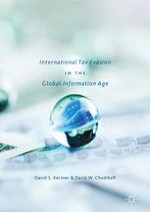2016 | OriginalPaper | Buchkapitel
5. International Tax Enforcement in the United States
verfasst von : David S. Kerzner, David W. Chodikoff
Erschienen in: International Tax Evasion in the Global Information Age
Aktivieren Sie unsere intelligente Suche, um passende Fachinhalte oder Patente zu finden.
Wählen Sie Textabschnitte aus um mit Künstlicher Intelligenz passenden Patente zu finden. powered by
Markieren Sie Textabschnitte, um KI-gestützt weitere passende Inhalte zu finden. powered by
